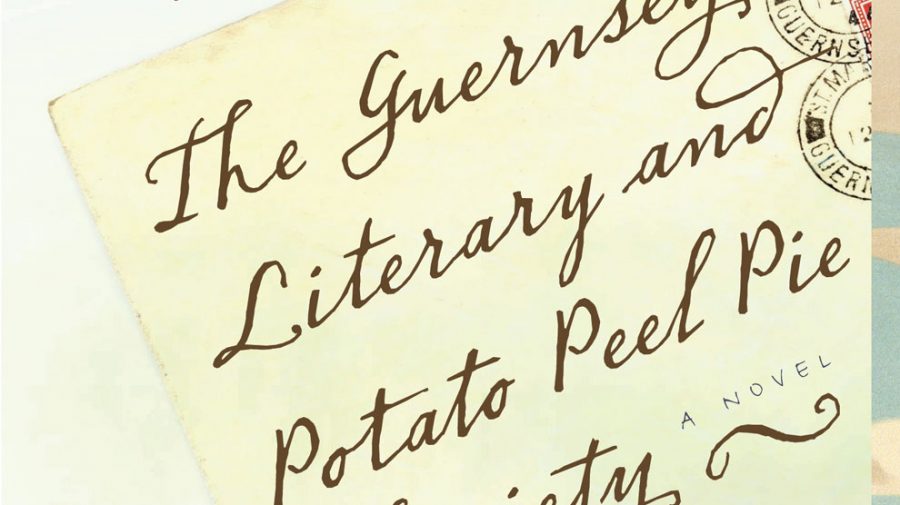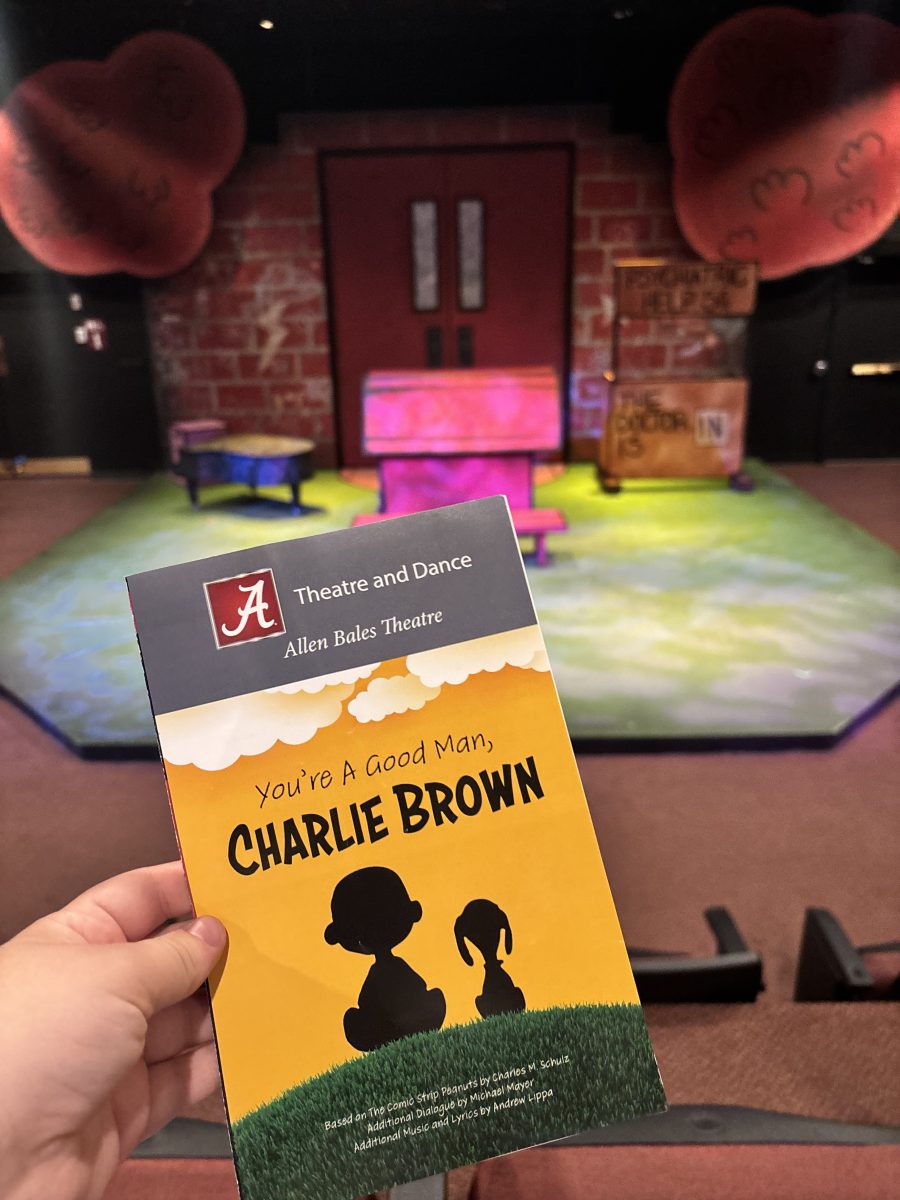 “The Guernsey Literary and Potato Peel Pie Society”
“The Guernsey Literary and Potato Peel Pie Society”
Photo Credit: Random House
Caption: Part romance, part comedy and part history lesson, “The Guernsey Literary and Potato Peel Pie Society,” written by aunt-niece duo Mary Ann Shaffer and Annie Barrows, tells the story of the English Channel island of Guernsey during and immediately following the German occupation of World War II.
I oftentimes wonder what Tuscaloosa’s tornado victims first purchased after losing everything they owned. This is partially because such a list of purchases would reveal all the things we take for granted, like clean clothes and comfortable pajamas. Such a list would also reveal where we derive meaning.
I remember my first purchases like it happened yesterday. After losing everything but the clothes on my back, the backpack in my car and a haphazard, dirt-splattered collection of belongings, I purchased what I needed and no longer had: two comfortable T-shirts, a pair of everyday-use cargo shorts, a pair of jeans and two pairs of $3 Old Navy flip flops. (Unfortunately, I forgot to buy underwear and almost cried when I realized my mistake after taking my first shower in four days. Oh, the things we take for granted.)
My only other purchase that day was a book, “The Guernsey Literary and Potato Peel Pie Society,” which I knew nothing about other than it seemed to be exactly what I was looking for – something slightly sad but also light-hearted and optimistic, something offering escape but also deeply rooted in reality, something that would take my mind off the tornado but wouldn’t repulse me by its excessive string of happy endings. “Guernsey” was absolutely perfect.
Set in England in 1946, this work of fiction is entirely composed of letters with images of war-torn Britain recurring throughout. Midway through, writer Juliet Aston (the book’s main character) travels to the only part of Britain ever to be occupied by Nazi Germany, the English Channel island of Guernsey, where she accumulates material for her new book by spending time with the locals and learning about their wartime struggles.
Along the way, we meet a host of endearing characters, all drawn together by their love of good books and hearty food (and ill will for the Germans). We meet a quiet farmer whose love for author Charles Lamb introduces him to Juliet, an independent and uncompromising young woman whose tenacity gets her imprisoned; a classy older woman whose sole purpose in life seems to be making others happy; an eccentric vegetable seller who also dabbles in potion-making; and a fisherman who longs for the return of his child, who he sent away to the British mainland for protection during the war.
What emerges is an eclectic collection of stories and voices so genuine it’s easy to forget you’re reading a work of fiction. It’s also easy to remain optimistic, despite the characters’ sufferings. Because the book is set after the war, we are constantly reminded that the characters’ biggest sorrows are behind them, and through the society’s weekly meetings, we are reminded that even little things, like great books and favorite pies, have the ability to comfort us in times of chaos.
We are also reminded of what constitutes a good book: heartfelt storytelling, authentic characters and a true-to-life balance of hope and grim reality, all combining to give us something we hope we can find again in another book.
To quote Juliet, “That’s what I love about reading: one tiny thing will interest you in a book, and that tiny thing will lead you onto another book, and another bit there will lead you onto a third book. It’s geometrically progressive, all with no end in sight, and for no other reason than sheer enjoyment.”
Here are few books I picked up after reading “The Guernsey Literary and Potato Peel Pie Society,” all of which I appreciate for their balance and sincerity.
Photo Credit: Penguin Group
“Eat, Pray, Love” may be one of my favorite books I’ve read all summer. Written with wit and humor, this memoir is divided into three sections set in three completely different places, Italy, India and Indonesia, with each building on the author’s quest to find happiness. In Italy, Elizabeth Gilbert finds pleasure in leaving all diets behind and relishing in tasty food. In India, she finds happiness through spiritual growth. In Indonesia, she finds happiness by balancing the two.
Photo Credit: Little, Brown & Company
Though Elizabeth Bard falls in love in one of the most romantic cities in the world, she also knows that living as an expat in Paris isn’t all glamour. Here, hard work is seen as character flaw, doctors don’t think twice about saying that cancer is incurable and apartment- and job-searches can often continue for months on end. But her story isn’t entirely bad, either. While in Paris, she also learns the art of cooking, which she shares with readers by including a set of French-inspired recipes at the end of every chapter.
 “The Help” (historical fiction)
“The Help” (historical fiction)
Photo Credit: Penguin Group
Written by Alabama graduate Kathryn Stockett, “The Help” is Southern through and through. Set in 1960s Mississippi, Stockett takes on the persona of three women: two black maids and one white, privileged, aspiring writer. The women join forces to write a book detailing the ups and downs of being a black maid during the volatile civil rights era, knowing they could lose their jobs or be physically harmed by sharing their stories.











